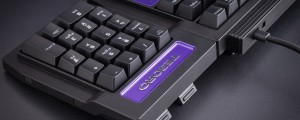When Palm announced the launch of their new smartphone platform, it was a pretty big deal, and created a lot of buzz in the smartphone community. Palm’s proof of concept—with their innovative multitasking interface—was widely praised, attracting the attention of Sprint, who signed on with WebOS as an exclusive carrier.
Palm, a relatively small company with a very big reputation in the portable device industry, was relying mostly on Sprint’s powerful marketing arm to catapult their new cutting-edge device into the mainstream. I was an early adopter of the Palm Pre, purchasing the phone two weeks after it came out.
From a geek’s standpoint, there were obvious advantages to using WebOS, especially when compared to the current generation of iOS. Not only was it capable of multitasking, something Apple wouldn’t master until much later, the task switching interface was incredibly intuitive, and easy enough for your average end user to figure out.
The initial launch, however, was not as successful as Palm and Sprint had imagined. The initial development platform for WebOS was a dismal failure. Palm’s development team had enough on their hands to deal with bug fixes and issuing updates. It took too long for Palm to put together a sufficient development platform, and the app catalog suffered greatly because of it.
Those of us who bought WebOS phones were left to develop our own apps, and the “homebrew” community essentially took over. You see, WebOS was the only product on the market that allowed you to “root” a phone easily so you could develop your own apps. All you had to do was type in the Konami code, set it to Developer Mode, and reboot the device. This resulted in two completely different app catalogs. The Palm store held all the licensed, commercial apps for WebOS, while the open source Preware app allowed everyone and their brother to spread around free utilities, apps, customizations, and hacks. Linux developers dominated the homebrew community, and started digging into the guts of the WebOS platform. Packages like Uberkernel and Govnah allowed users to overclock/underclock their processor and optimize the I/O scheduler and TCP congestion handlers, as well as compressing all or part of your swap partition and optimize memory usage.
Surprisingly, Palm never gave much resistance to the homebrew community, and eventually they ended up greatly influencing the development of the phone. Homebrew patches would fix bugs before Palm could release updates, and those patches would eventually end up getting streamlined into official updates. The second version of WebOS adopted compcache and many other optimizations that were previously only available through hacks.
Still, the platform was struggling to keep up with Android and iOS in availability of powerful apps, especially when it came to new social media tools. Hacks and patches were providing an experience that no other smartphone platform could offer, but users were having to wait six months to a year for mainstream apps to become available. Some developers ignored WebOS altogether.
 To further complicate things, Sprint appeared to be trying to sweep the whole platform under the rug. New phones were released with new styles and upgraded hardware, which became available on AT&T and Verizon, while Sprint users were still stuck with the original phones. Even this didn’t stop users from taking apart their Verizon and AT&T phones, swapping out the communications board for Sprint hardware, and reconfiguring the phones to work on the Sprint network. Towards the end of my days with WebOS, I was using a Verizon Palm Pre Plus that had been converted to the Sprint network using the “FrankenPre” process.
To further complicate things, Sprint appeared to be trying to sweep the whole platform under the rug. New phones were released with new styles and upgraded hardware, which became available on AT&T and Verizon, while Sprint users were still stuck with the original phones. Even this didn’t stop users from taking apart their Verizon and AT&T phones, swapping out the communications board for Sprint hardware, and reconfiguring the phones to work on the Sprint network. Towards the end of my days with WebOS, I was using a Verizon Palm Pre Plus that had been converted to the Sprint network using the “FrankenPre” process.
Two years went by and the contracts of early adopters like myself were coming to an end. It was time to upgrade, and most of us were still willing to stick with the platform. Sprint, however, continued to resist WebOS, now owned by HP, and offered nothing to the users who were loyal to the platform from day one. I held out until mid-July of this year, and after having some complications with my hackjob of a phone, called it quits and moved to Android.
While I realize that hindsight is always 20/20, I still can’t help but wonder why I didn’t make the move to Android sooner. Within a couple of days of using my new Android device I started to realize that I was missing out on a lot more than I thought. All of the apps I want to use are available, work better, and have more features than their WebOS counterpart, assuming that an app for WebOS even exists. The plethora of features that Google offers with the Android platform are miles ahead of the stock apps that are available with WebOS. After using the phone for a couple of months, I’m starting to realize how silly it was to hold on to WebOS for as long as I did, essentially because it had a better task manager. I got too caught up in the phone’s potential to realize that there were more powerful forces at play.
HP announced recently that they are giving up on WebOS for good, halted production on the WebOS tablet, and dumped their inventory through a fire sale. I believe Sprint played the largest role in the demise of WebOS, but I can’t say that I blame them. In the end, Google provided a more profitable business model, and supported it with their top notch marketing arm. Neither Palm or HP could provide that to Sprint, and a product can only last so long on principle alone.
Now I’m left with a pile of broken Palm Pres, most of them in pieces, and the ghosts of all the apps I bought through the Palm/HP store still haunt me to this day. As I slowly build up my app library, I think back on all the expensive mistakes my curiosity of technology has gotten me into. I wouldn’t change a thing though, as these mistakes in judgment have led to a deeper appreciation for technology, and experiences that I will take with me for the rest of my life.
And there you have it, that’ll be the last article I write about WebOS. (or is it?)











 Articles RSS
Articles RSS